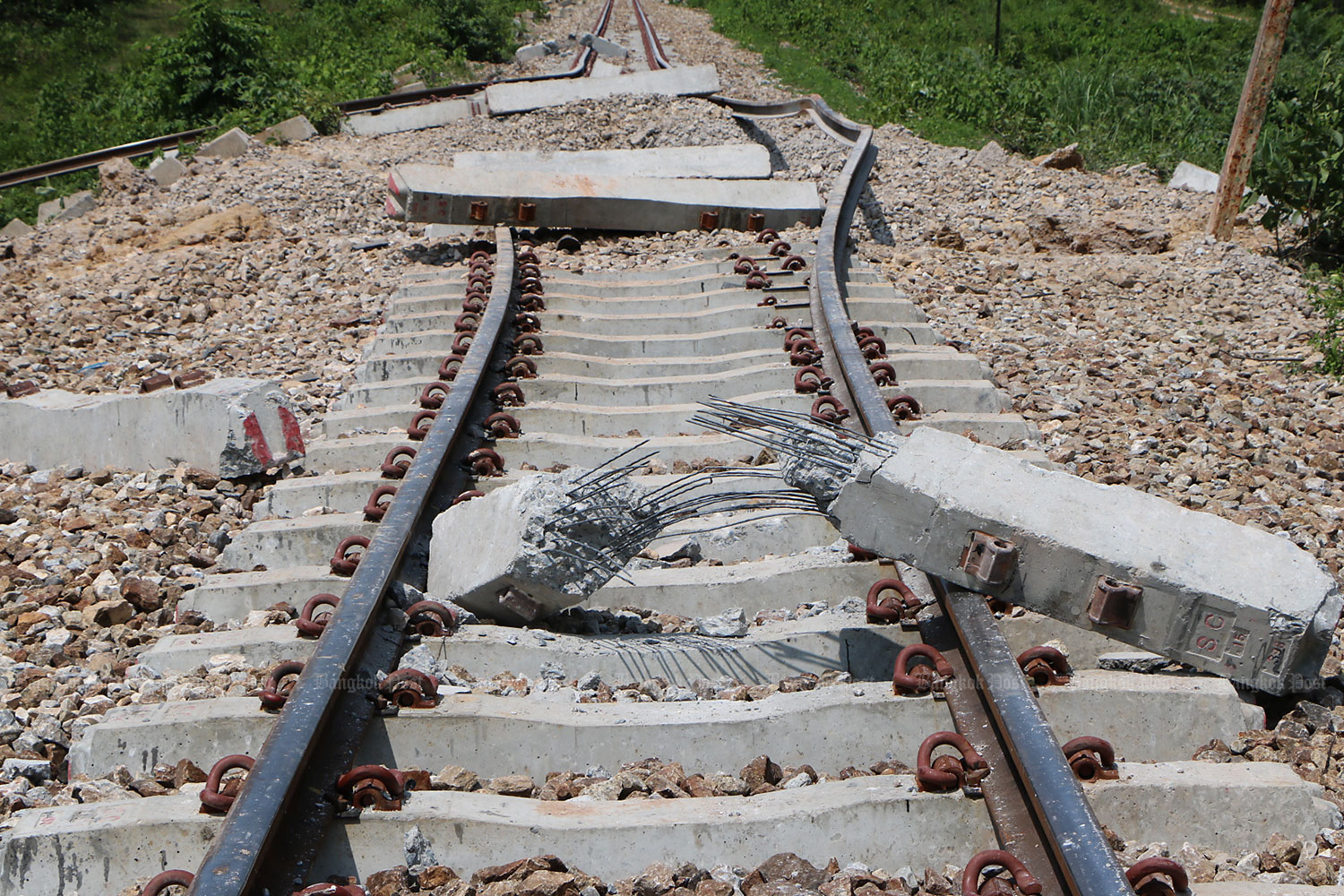
Two bombs set off at a railway track in Songkhla province have shone a spotlight on the lack of sufficient security protection for this train route in the deep South.
On Saturday, the first bomb exploded at some tracks near Khlong Ngae station in Sadao district, close to the Malaysian border. Causing no serious injuries, the bomb derailed and damaged a freight train. It is believed to have been planted by anti-government insurgents, who were arrested shortly after.
Yet the tragedy that could have been evaded occurred three days later when another explosion occurred at the site where the freight train was derailed.
Three State Railway of Thailand employees who had been deployed to clear the wreckage after the Explosive Ordnance Disposal (EOD) unit cleared the area were killed and four others wounded.
The key question is, how was the second attack possible after the EOD had already cleared the area?
Pol Maj Gen Vara Vejjapinant, commander of the Songkhla Provincial Police, defended the work of the EOD and blamed the rain for interfering with the bomb clearance efforts. However, that has done little to inspire confidence among local villagers and SRT staff, who risk their lives to keep the train service running on a daily basis.
The state agency that is responsible needs to conduct a probe -- not to find fault, but rather to learn how the bomb-clearance efforts went awry, in order to prevent a repeat of this tragic incident.
Bomb attacks on railways in the deep South are not a new trend. Yet this is the first time the Hat Yai-Padang Besar route has been attacked. Historically, the Hai Yai-Sungai Kolok route in Narathiwat province has been the chief target of insurgents.
The latest attack came as the State Railway of Thailand plans to open a new special shuttle train service this Saturday that will bring tourists from Kuala Lumpur in Malaysia. The SRT also plans to launch a logistics service to deliver farm goods from Thailand's central region to Malaysia. The attacks, needless to say, will result in lost business opportunities for the already impoverished deep South.
Separatists often plant bombs, shoot or simply remove pins along the 200-kilometre Hai Yai-Sungai Kolok rail route that runs through deep jungle and high terrain, making it easier for insurgents to launch attacks from higher ground. Since 2004, five SRT staff have been killed by such blasts with another 45 seriously injured in over 100 attacks, according to data collected by Isra News Center, an independent news agency under the Thai Journalist Associations (TJA).
The government must work much harder to guard these routes, commuters, and SRT staff. In the past, intensive patrols proved to be short-lived measures that have done little to deter insurgents.
There have been many complaints from SRT employees about the lack of surveillance equipment in the area, such as CCTV cameras or X-ray machines to scan bombs at train stations, as well as a paucity of protective gear like bulletproof vests. The SRT must provide this life-saving equipment and infrastructure rather than pinch pennies.
Better links can upgrade the local economy. Fast and safe train travel can also help upscale tourism and logistics while providing affordable and low-carbon transportation for local people and businesses. The government has pledged to make villagers in the region safer and wealthier. But how can these promises come to fruition if it can't make trains safe to use?
